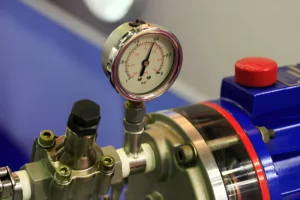Plumbing tools are the backbone of any successful plumbing job, whether you are a professional or a DIY enthusiast. These tools endure a lot of wear and tear, making proper maintenance crucial for longevity and performance. Regular upkeep extends the life of your plumbing tools and ensures they work efficiently when you need them most. From routine cleaning to proper storage, each step helps prevent unnecessary replacements and keeps your work smooth. This guide offers ten essential tips for maintaining your plumbing tools, ensuring they stay in top shape and ready for any challenge.

#1. Clean Tools After Each Use
After completing a job, always clean your plumbing tools thoroughly. Dirt, grime, and residue can cause rust and reduce functionality. Use a wire brush or a clean cloth to remove debris. A mild detergent can help with stubborn grime. Keeping your tools clean will prevent the buildup of harmful substances and extend their life.
#2. Lubricate Moving Parts Regularly
Many plumbing tools have moving parts that require regular lubrication. Apply a few drops of oil to hinges, joints, and threads to ensure smooth operation. This helps prevent rust and keeps your tools working efficiently. Be sure to use the correct type of lubricant for each tool to avoid damage.
#3. Store Tools Properly
Proper storage is crucial for maintaining your tools. Please keep them dry and clean to prevent rust and corrosion. Use a toolbox or a designated storage area to keep tools organized and protected. Avoid leaving tools exposed to the elements or in damp areas.
#4. Inspect for Damage
Regularly inspect your plumbing tools for any signs of damage, such as cracks, rust, or worn-out parts. Addressing these issues promptly can prevent further damage and ensure your tools remain safe and effective. Replace any damaged parts or tools as needed to maintain optimal performance.
#5. Sharpen Cutting Edges
Tools with cutting edges, such as pipe cutters and saw blades, must be kept sharp for efficient operation. Use a sharpening tool or file to maintain the sharpness of these edges. Dull blades can cause frustration and reduce the precision of your work.
#6. Avoid Overloading Tools
Using plumbing tools beyond their intended capacity can cause unnecessary wear and tear. Always follow the manufacturer’s guidelines regarding the maximum load or pressure. Overloading can lead to tool failure and potentially unsafe conditions.
#7. Use Tools Correctly
Proper use of plumbing tools helps prevent damage and ensures their performance. Follow the instructions provided with each tool and use them for their intended purposes. Misuse can lead to premature wear or even breakage.
#8. Remove Rust Promptly
If you notice rust on your plumbing tools, address it immediately to prevent further damage. Use a rust remover or a wire brush to clean off the rust. For severe rust sand the affected area and reapply a protective coating.
#9. Protect Against Corrosion
Consider applying a rust-resistant coating or spray to protect your plumbing tools from corrosion. This is particularly important for tools that are frequently exposed to moisture. Regularly check and reapply protective coatings as necessary.
#10. Calibrate Tools Periodically
Some tools require periodic calibration to ensure accuracy. For example, pressure gauges and other measuring instruments should be checked and calibrated according to the manufacturer’s recommendations. Accurate tools are essential for precise work and avoiding errors. “Plumbers Supply Services“
Conclusion
Maintaining your plumbing tools is essential for ensuring they perform at their best and last as long as possible. By following these essential tips, you can keep your tools in top condition, making every plumbing job more efficient and effective. Regular cleaning, proper storage, and routine checks are all part of a comprehensive maintenance plan. With a little effort you can prevent many common issues and keep your tools ready for any challenge that comes your way.
FAQs
What type of lubricant is best for plumbing tools?
Use a light machine oil or a lubricant specifically designed for the type of tool you are using. Check the manufacturer’s recommendations for the best results.
How can I prevent rust on my plumbing tools?
Store your plumbing tools in a dry place and apply a rust-resistant coating or oil. Regular inspection and cleaning can also help prevent rust.
When should I replace my plumbing tools?
Replace plumbing tools when you notice significant damage, such as severe rust or cracks, or if they no longer function appropriately despite maintenance efforts.
Can I use household cleaners on my plumbing tools?
For most plumbing tools, mild detergent and water are sufficient. Avoid harsh chemicals that can damage the tools. Always follow the manufacturer’s cleaning instructions.








